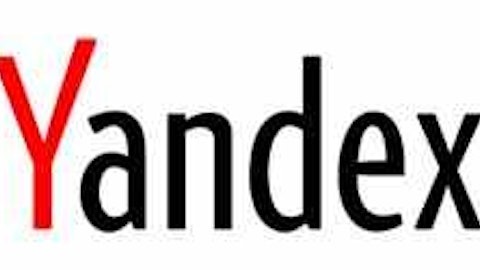PepsiCo, Inc. (NYSE:PEP)
Pepsi’s been around for more than a century, but it’s trying to change with the times. CEO Indra Nooyi has been injecting responsibility and sustainability into the company’s basic mission, and trying to increase the numbers of healthy products it offers. Pepsi’s mission is called “Performance with Purpose,” and according to the company’s 10-K: “We plan to continue delivering on this vision by offering a wide range of product choices, finding innovative ways to cut costs and minimize our impact on the environment, providing a safe and inclusive workplace and respecting and investing in the communities in which we operate.” This hasn’t hurt Pepsi, judging by its recent results and the dawning possibility that Pepsi’s actually kicking The Coca-Cola Company (NYSE:KO) right in the can.
Coke isn’t taking this all lightly. Just last week, it announced that it’s adding a healthy option to its beverage portfolio by taking a majority stake in Innocent Drinks. This beverage line joins non-soda Coke options like Odwalla and Honest Tea. The company itself boasts eco-friendliness and frequent donations of profits to charity.
Pepsi’s current forward price-to-earnings ratio of 16 is in line with Coke’s right now. However, Pepsi is a stronger stock idea because it’s far less reliant on beverages, since its portfolio is mostly foods rather than drinks.
Unilever plc (ADR) (NYSE:UL)
Unilever is a massive conglomerate, but it has also been a company with an outspoken view of how environmental responsibility reduces waste and increases profits — a win-win. Its most notable achievements have been its specific performance goals and more than 50 targets related to its Sustainable Living Plan. Also notable: Unilever has been altering its business model with a focus on sustainability, not simply envisioning this as a nice add-on that’s not core to the business. Last April, the European head of Unilever posited that improved environmental practices could help double the company’s sales. Unilever’s growth last quarter despite the difficult economy doesn’t make the company look like a bad investment, either. Unilever’s shares trade at 17 times forward earnings, about on par with rival The Procter & Gamble Company (NYSE:PG); Unilever’s price may not be a bad deal for a company that’s planning an evolutionary growth strategy.
Positive impacts, in portfolios and beyond
Granted, those companies aren’t perfect. Moreover, weighing investments in socially responsible companies is more art than science, as high valuations and weak growth prospects can trump positive ESG elements.
Still, there’s plenty of indication that virtue can beat vice, and that more and more investors are recognizing how important these factors are in relation to risk versus reward. Positive ESG attributes bode well for our future, too. Companies that do the right things without losing traction in the marketplace — and often even gain traction for their positive efforts — equal a win-win for investors and the world alike.
The article Investing in Virtue to Beat the Market originally appeared on Fool.com and is written by Alyce Lomax.
Alyce Lomax owns shares of Whole Foods Market. The Motley Fool recommends Coca-Cola, Google, PepsiCo, Procter & Gamble, Unilever, and Whole Foods Market. The Motley Fool owns shares of Citigroup Inc , Google, PepsiCo, and Whole Foods Market.
Copyright © 1995 – 2013 The Motley Fool, LLC. All rights reserved. The Motley Fool has a disclosure policy.





